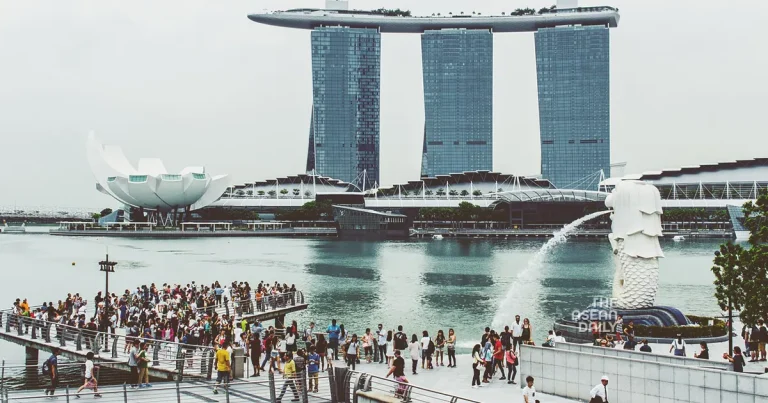31-10-2023 (SINGAPORE) The luxury housing market in Singapore is experiencing a significant slowdown due to one of the nation’s largest-ever money laundering scandals, causing a decline in high-end bungalow sales.
Data compiled by Knight Frank reveals that as of the end of September, only eight high-end bungalows have been sold, making it the worst year in nearly a decade. Realstar Premier Group Pte, an agency specializing in landed homes, reported selling fewer than half of the usual 10 properties per month in September.
This transaction drought can be attributed to ongoing money laundering investigations involving individuals of Chinese origin, substantial tax hikes on foreign buyers, and rising interest rates. Additionally, rental demand for once highly sought-after mansions, which commanded monthly rates of up to S$150,000 (US$110,000), has cooled as affluent individuals reconsider investing in flashy homes in the city-state.
“The recent anti-money laundering crackdown by the Singapore police force has cast a shadow over the luxury property market,” said Lewis Cha, executive director for List Sotheby’s International Realty. “It will take time for the market to recover from this negative perception of luxury real estate.”
While Knight Frank’s figures do not account for undisclosed deals, the eight mansions sold represent a significant decline compared to the 20 sold last year. This number is a mere fraction of the 60 units transacted in 2021, marking an 80% drop from the S$2.1 billion in sales recorded that year. Such low figures have not been seen since 2014 when assets worth S$431 million were purchased.
Sellers, landlords, and agents have become more cautious, implementing stricter background checks, and in some cases, actively declining deals from potential clients.
According to an anonymous source, the owner of a “good class bungalow” turned down a prospective tenant from China’s Fujian province, despite an offer to pay five years of rent upfront for the S$100,000-a-month property. Authorities have revealed that most of the suspects arrested in the money laundering case are from Fujian.
While Singapore’s Council for Estate Agencies advises against discriminatory or stereotypical advertisements and warns of disciplinary action against property agents who violate these guidelines, there are no specific laws penalizing landlords for refusing rental based on such grounds. The Council for Estate Agencies did not provide a comment in response to a request.
Potential buyers are adopting a “wait-and-see” approach, closely monitoring the market’s pricing trends and the full extent of the ongoing investigations and subsequent punishments, according to Jennifer Chia, a partner at TSMP Law Corp. who heads the firm’s corporate real estate, banking, and finance practices.
Good class bungalows, reserved for the ultra-rich, refer to mansions with plot sizes of at least 1,400 square meters (15,100 square feet), typically located in exclusive neighborhoods. Half of the ten individuals arrested in the money laundering case resided in such properties. For instance, Su Baolin occupied a mansion on Nassim Road, an ultra-exclusive area that houses several embassies.
Another individual implicated, Vang Shuiming, lived in a villa with a large rooftop pool and gym in Bishopsgate, a leafy enclave near Singapore’s premier shopping district. Government-released rental data reveals that Vang paid at least S$150,000 per month in November 2020, setting a record at the time.
Following the money laundering case, Julian Yip, managing director at Realstar, noted that finding tenants willing to spend over S$100,000 a month has become increasingly challenging.
Furthermore, rising interest rates, escalating costs, and tax hikes have further dampened buyer interest. Good class bungalows are typically restricted to local buyers, unless special approval is granted by the government, resulting in foreigners often paying exorbitant rents for such properties.
“With increased interest rates and uncertainty, buyers have become more cautious,” said Leonard Tay, head of research at Knight Frank Singapore. “The overall price increases since 2020 have also made it more expensive to acquire these luxury landed properties.”




